Shark net ban: Calls for Central Coast, Lake Macquarie, Sutherland to join other council’s push
Three coastal councils are being lobbied to oppose the State Government’s controversial and archaic shark meshing program in favour of new technology. Do you agree? Take our poll.
Manly
Don't miss out on the headlines from Manly. Followed categories will be added to My News.
The Central Coast, Lake Macquarie and Sutherland Shire councils are being lobbied to join the rest of NSW’s coastal councils, which have resolved to ask the Department of Primary Industries to end its shark meshing program off their beaches.
Shark meshing has been used in NSW since the 1930s but the Humane Society International (HSI) Australia has launched a joint campaign with the Australian Marine Conservation Society (AMCS) to have outdated shark nets make way for new technologies that are more effective at protecting swimmers as well as wildlife.
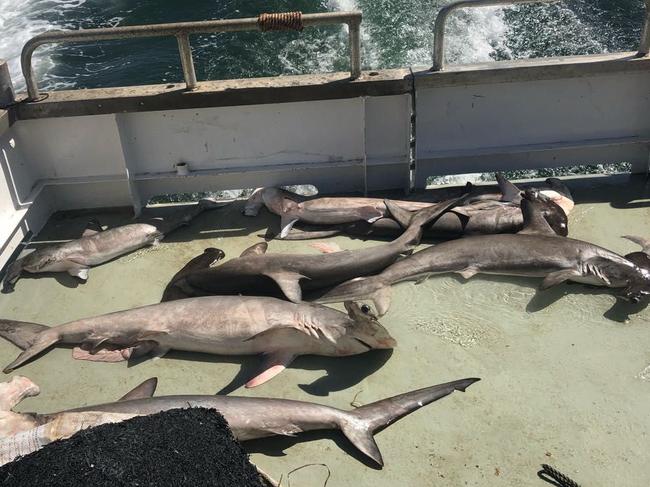
The campaign is calling for the use of drones, smart drum lines and shark listening devices, which monitor sharks that have already been tagged and released, to be used instead.
Randwick Council was the first to resolve to write to the DPI calling for shark meshing to be banned off its beaches at its meeting on February 23.
Waverly Shire Council, where meshing has been done since 1937, followed in March while Wollongong, Newcastle and the Northern Beaches councils resolved to call for a ban on meshing last month.
Nearly 400 non-target animals have been killed on Central Coast beaches since 2012 as a direct result of the 11 shark nets currently in use.
Of these, 330 were threatened or protected species including 10 dolphins and 18 turtles.
A further 170 animals were caught and released to an unknown fate after becoming entangled in nets.
Netting is conducted off four Lake Macquarie beaches were 502 animals have been trapped since 2012, with 254 killed.
Of those killed, 147 were threatened or protected species including four dolphins and three turtles.
Similarly there are four nets of Sutherland beaches were 72 animals have been caught and 44 killed including four dolphins, three turtles and 32 other threatened or protected species.
Along the entire NSW coast shark nets have caught nearly 3000 marine animals since 2012, killing more than 1600 animals or about 56 per cent of all animals which become entangled.
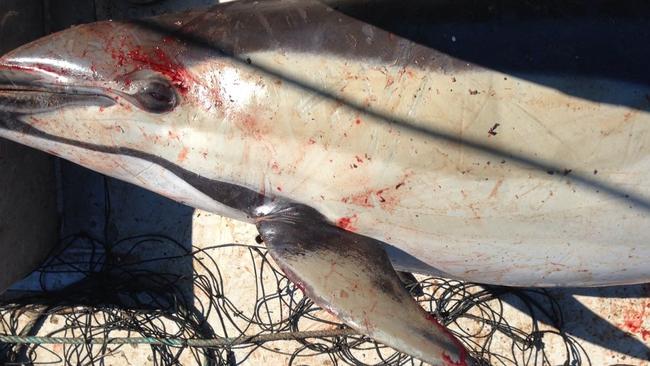
HSI marine biologist Lawrence Chlebeck said given 40 per cent of sharks were caught on the beach side of nets, the meshing program provided nothing but a false sense of security for beach goers.
“What a lot of people might not realise is that the nets are not complete barriers, they are
only about 150m long and 6m high and sharks swim over and around them,” Mr Chlebeck said.
“The technology is nearly 100 years old, we would never accept safety technology that old in any other facet of our lives, why should ocean safety be any different? It is in everyone’s best interest that the current shark meshing program is done away with and HSI is pleased to see that attitude being reflected at the local council level and we hope to see the (other councils) make the same decision.”
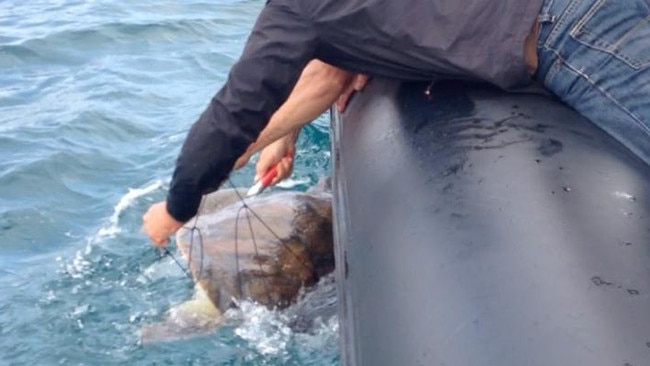
He said other technology and scientific advancements have been tested by NSW DPI
and proven effective including drone surveillance, smart drumlines, personal shark deterrents and education programs without the toll on wildlife.
Australian Marine Conservation Society shark scientist Dr Leonardo Guida said the majority of coastal councils with shark nets have passed motions submitting to NSW DPI that they do not support the continued use of shark nets.
“We’ve got modern solutions to beach safety like drones that don’t drown our
iconic wildlife, can spot sharks in advance, and have a big added bonus of spotting people
at risk of drowning — the biggest danger at our beaches,” he said.
“Why persist using 80-year-old methods?”
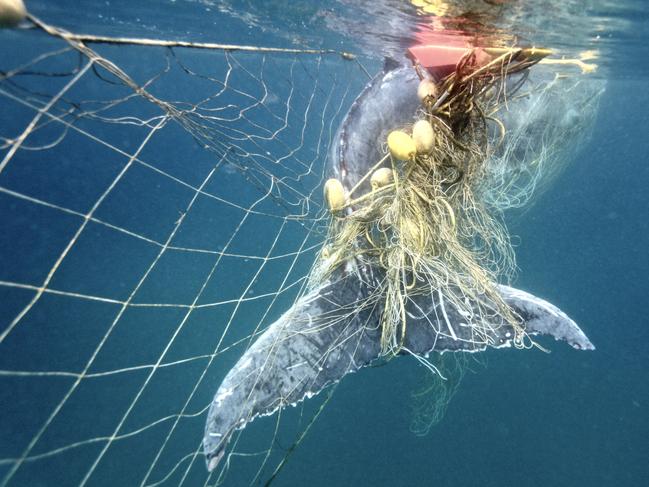
A spokesman for Lake Macquarie Council said it was opposed to the shark meshing program.
“Council staff have completed the NSW Shark Management Strategy survey undertaken by the NSW Department Primary Industries,” he said.
“Our preference for shark mitigation measures for Lake Macquarie beaches is for the use of SMART drumlines, community education initiatives, utilising technology like the SharkSmart app and/or personal shark deterrent devices as alternatives to shark mesh nets.”
Similarly Central Coast Administrator Rik Hart said council opposed nets.
“Council does not support shark mesh nets and instead encourages DPI to consider alternatives and to fully utilise all available technology, including aerial surveillance with drones, community education programs, shark listening stations connected to a Shark Smart App, lifeguard towers, smart drum lines, and personnel deterrents,” he said.
However a spokesman for the DPI said there were no plans to permanently remove shark nets from beaches.
“Nets are managed to minimise the impact on migrating whales and other marine mammals, and contractors carry out frequent inspections to minimise the impact on sea life,” he said.
“Nets are currently part of a broader shark mitigation program that also includes drones, SMART drumlines, VR4G tagged shark listening stations, research, and community engagement and education.
“People are safest when we get the balance right, and that includes nets where appropriate.”
EARLIER
‘Sharks don’t like human’: Council calls for beach net ban
On April 29
Northern Beaches Council has passed a motion calling on the NSW Government to stop using shark nets on local ocean beaches.
It is calling instead for the use of technology including drones and shark listening stations to protect beachgoers from attacks.
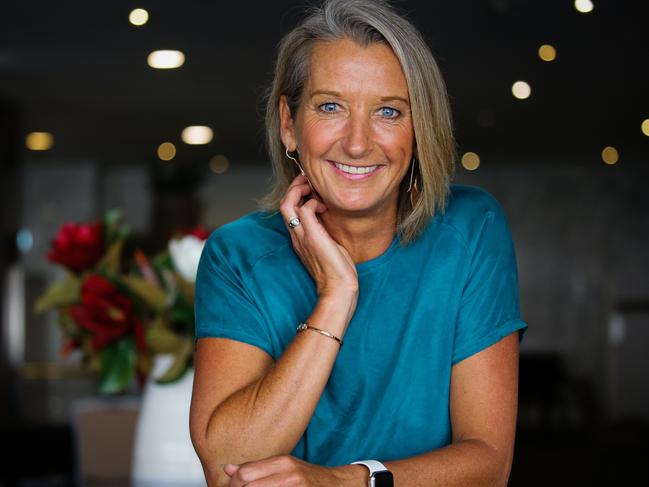
This motion, at Tuesday night’s meeting, comes after data – obtained through Freedom of Information — released by the Animal Justice Party last week, showing at least 290 animals died in northern beaches’ shark nets during the past nine years, including 18 whales and dolphins, 21 turtles, and 224 threatened or protected species.
Animal Justice also released shocking photos of dead dolphins, turtles and other vulnerable sea creatures found tangled in shark nets off Sydney beaches.
Former world champion pro-surfer Layne Beachley spoke at the meeting, asking the council to drop its support for netting.
“The ocean is my life. I have played, swum and surfed in the ocean for close to 49
years, and am yet to encounter a shark, let alone feel threatened by one,” she said.
“Sharks don’t like the taste of human.
“I despise the idea that animals are dying along the beaches for ocean users and surfers, such as myself.”
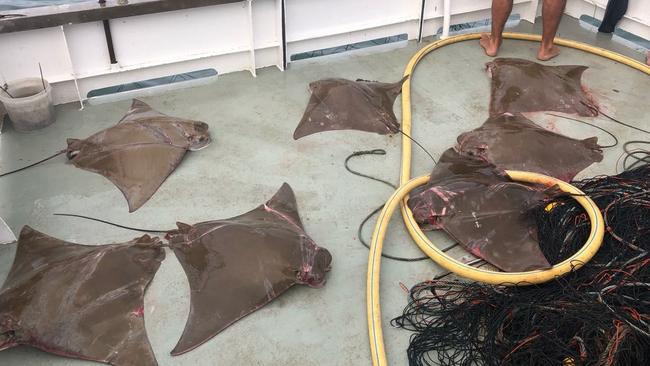
Council voted to urge the nets be banned as part of its response to a Department of Primary Industries – Fisheries (DPI Fisheries) survey of councils on their preferred shark mitigation measures.
The council also endorsed the use of hi-tech drumlins to catch potentially dangerous sharks. It also supported the use of drones, helicopters, electronic shark listening stations linked to Apps and community education.
Management of the Shark Meshing Program (SMP) is the responsibility of the Department of Primary Industry (Fisheries). Nets are set from September to April 30 and are generally set parallel to beaches near surf clubs and patrolled swimming areas.
Now the Animal Justice Party and community group, Humane Society International (Australia), called for the ban on the nets, based on the marine death data.
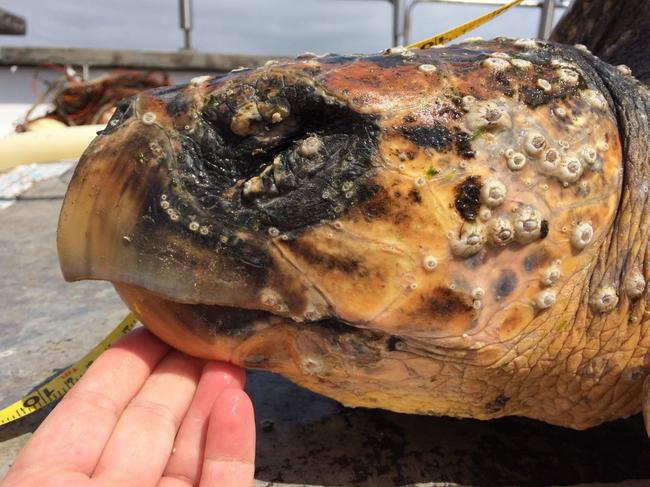
Acting mayor Candy Bingham said the council considered both the need to maintain or improve swimmer safety as well as the negative impacts on non-target marine species in reaching its decision.
“The effectiveness of shark nets has been questioned by many, yet their impact on other marine species is devastating,” Cr Bingham said.
“We have an aquatic reserve in Manly where turtles and rays are regularly seen by snorkellers, and up and down the beaches dolphins surf the waves alongside local board riders.
“If the evidence is that there are other just as, or more, effective ways to mitigate shark risk, such as drone and helicopter surveillance, listening stations and deterrent devices, then we owe it to those non-target species to remove the nets.”
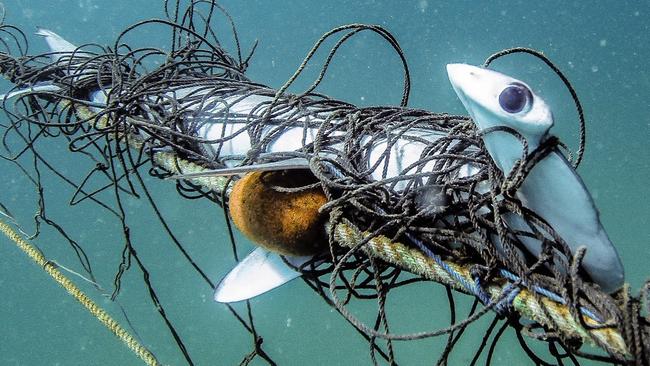
Animal Justice Party (Northern Beaches) spokeswoman Susan Sorensen welcomed the move by Northern Beaches Council to protect marine animals from the shark nets.
“Shark nets are cruel, indiscriminate and ineffective. They have no place on the beaches here on the northern beaches or anywhere across NSW,” Ms Sorensen said.
“Research has made it abundantly clear that shark nets do not effectively improve human safety in the water, instead they simply kill marine animals.
“Over half the animals including dolphins, whales and turtles unfortunate enough to become entangled in these deadly nets, will suffer a slow and painful death by drowning.”
Ms Sorensen said drones, helicopters and listening stations were better options to help the community to swim safely.
“Because of community action to protect animals, shark nets have already been removed along the north coast of NSW. It’s time for the same to happen here in the northern beaches.”
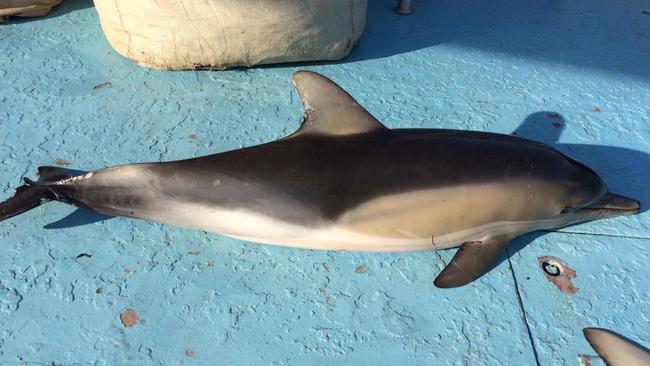
Humane Society International marine biologist Lawrence Chlebeck also welcomed the council’s motion.
He said shark meshing “provides nothing but a false sense of security for ocean users, with 40 per cent of sharks being caught on the beach side of the nets.
“[In fact, during the lifetime of the SMP there have been 34 unprovoked human-shark interactions at netted beaches in NSW.
“What a lot of people might not realise is that the nets are not complete barriers,
they are only about 150m long and 6m high and sharks swim over and around them.
DPI Fisheries said the objective of the shark nets, which were introduced at popular NSW beaches in 1937, was to “reduce the risk of shark interactions … at public bathing beaches” from target species — white, bull and tiger sharks.




